NEW YORK CITY BECOMES 200th CITY TO JOIN GLOBAL CITIESWITHNATURE INITIATIVE

New York City has become the 200th city to join CitiesWithNature, a global partnership initiative that strengthens collective action and impact to protect biodiversity and reconnect urban communities with nature. New York is taking up this leading position alongside London, Los Angeles, São Paulo, Cape Town, Barcelona, Montreal and Melbourne.
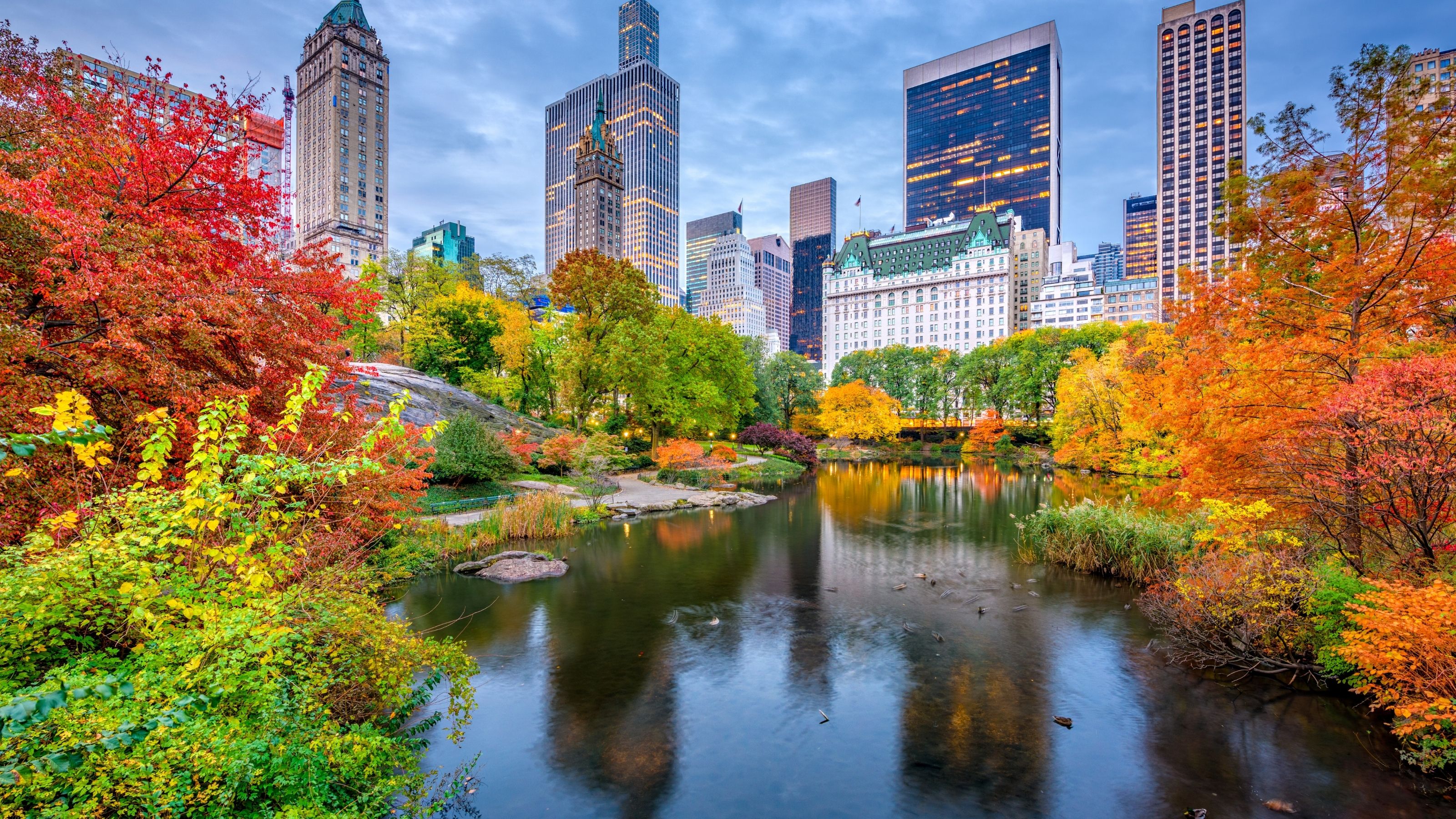
This comes in the wake of the recent United Nations climate change summit, COP26, where nature was prominent on the agenda like never before, and which emphasised the critical importance of addressing the nature and climate crises together.
The escalating decline in biodiversity and associated multiple ecosystem goods and services has implications for the quality of life of current and future generations, adversely limiting our ability to combat poverty, hunger and climate change. As we enter the Decade on Ecosystem Restoration, scientists estimate that around one million species already face extinction, many within decades, unless action is taken to reduce the intensity of drivers of biodiversity loss. (1)
“We’ve been working tirelessly across all five boroughs to bring cleaner air, water, and new greenspaces to all New Yorkers,” said New York City Mayor, Bill de Blasio. “As a result, wildlife is once again flourishing, as we build a more environmentally friendly, sustainable city. We are proud to join CitiesWithNature and continue this work with other global leaders. New York City is proof that you can create climate-friendly, biodiverse cities that support the well-being of all of our residents, including those with feathers, fins and fur.”
The Big Apple has been growing ever greener for many years. It has long been a leader on climate action in particular, implementing bold programmes and advocating for the vital role cities have to play in combating climate change. This experience, coupled with New York City’s renowned energy and innovation, is set to inspire many other cities through the CitiesWithNature initiative.
Join CitiesWithNature
New research (2) shows that hundreds of millions of people across the world are concerned that the natural world is under threat, and that number is growing. Citizens are increasingly demanding action from local and subnational government leaders. With more than 80% of global GDP generated in cities (3) and more than half of global GDP estimated to be dependent on nature (4), it is clear that cities have a critical role to play in ensuring nature is restored and protected.
“CitiesWithNature are true leaders, understanding that there is no future without nature. Our urban leaders are taking bold, decisive action to protect biodiversity and restore ecosystems to counteract climate change and ensure human health and wellbeing. We are proud to call New York City one of our CitiesWithNature and congratulate them for stepping up to strengthen collective action for nature and ensure transformative change,” said Kobie Brand, Global Director of ICLEI Cities Biodiversity Center.
On the online CitiesWithNature platform, cities of all sizes and levels of progress in working with nature, from around the world are connecting, sharing their experiences and actions, and benefiting from access to a range of partner organisations and practical tools.
“As ICLEI’s Global Ambassador for Local Biodiversity, I congratulate all of the cities that have joined CitiesWithNature, leading up to New York City being the 200th city,” said Valérie Plante, Mayor of Montreal. “The City of Montreal is proud to be part of CitiesWithNature, as we pursue our ecological transition to counter climate change by boosting public transit, expanding bike lanes and planting half a million more trees over the next decade. I encourage other cities around the world to join CitiesWithNature and share their commitments and actions through the Action Platform.”
“London joined CitiesWithNature as the 100th Pioneer City, leading by example on conserving and restoring urban nature for the benefit of people and wildlife,” said London’s Deputy Mayor for Environment and Energy, Shirley Rodrigues. “The Mayor has made huge strides in increasing and protecting the capital’s green spaces, securing London’s status as the world’s first National Park City. Over £20 million has been invested to help make London greener, including creating and improving over 400 hectares of green space and planting over 350,000 trees. Congratulations to New York City on becoming the 200th city. Through collaboration we can ensure we take the action needed to restore nature in our cities.”
- https://ipbes.net/sites/default/files/2020-02/ipbes_global_assessment_report_summary_for_policymakers_en.pdf
- https://wwfint.awsassets.panda.org/downloads/an_ecowakening_measuring_awareness__engagement_and_action_for_nature_final_may_2021__.pdf
- https://www.worldbank.org/404_response.htm
- https://www.sitra.fi/en/articles/the-circular-economy-is-key-to-halting-biodiversity-loss/
CitiesWithNature and its partner organisations are at COP26 in Glasgow making the case for climate and nature goals to be pursued together in the urban context. They are hosting various in person, hybrid and virtual events in and around COP26, starting 31 October and running until 12 November.
Read on for a summary of important urban nature and climate events you can attend (document attached below).
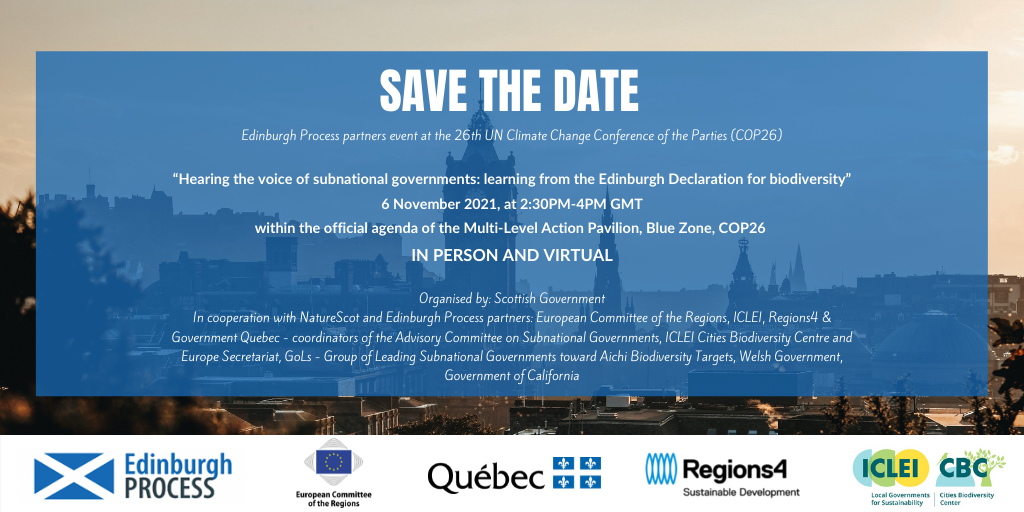
Enhancing urban nature via indigenous land management in Australian cities
Urban nature areas can benefit from indigenous land management practices such as cultural burns. The Australian city councils of Adelaide, Cairns and Yarra shared how they are partnering with Traditional Owners to achieve this at a recent webinar hosted by ICLEI Oceania.
The speakers explored how councils can work together more effectively with Traditional Owners to protect and restore nature in and around urban areas. The session was introduced by Councillor Amanda Stone from the City of Yarra, who is also Chair of ICLEI’s Regional Executive Committee. She highlighted the importance of recognising the owners of the land. “We have entered the UN Decade of Ecosystem Restoration, yet we have been causing enormous damage to our planet, we have been dismissing nature and using more resources. We need to bring nature back. Here in Australia, we are lucky to live in a land with thousands of years of transmitted knowledge through Traditional Owners about how to live in harmony with nature, how to respect the land. Learning from Traditional Owners is a gift but it is also a door to the future of more respectful relations with nature and the ancient land. So that we all have a future”.
Three stories were then shared about how the Councils of Cairns, Adelaide and the Yarra Ranges are working with traditional owners, their approach and protocols, and how these are being applied to biodiversity and NbS initiatives.
In the Cairns Regional Council, Sophie Barrett, Advisor Strategy & Sustainability, shared how the Council aims to develop a set of inclusive and culturally appropriate guidelines for Council staff, elected members and consultants to inform engagement and remuneration of Aboriginal Traditional Owner groups across the Cairns LGA.
From the City of Adelaide, Chris Butcher, Senior Sustainability Advisor (Biodiversity), and Marty Reeve, Kaurna Liaison Officer, shared their insights from work on the Adelaide Park Lands, where the Council is working with and empowering Kaurna and other First Nations People to restore historic land management practices as business as usual for native vegetation.
From the Yarra Ranges, Gary Detez, Indigenous Development Coordinator, shared how the indigenous knowledge of culture and country, skills and experience in both cultural burns and contemporary fire management practices, present a unique opportunity to reinvigorate Australia’s cultural fire knowledge to heal the land across Australia. The Firesticks Alliance is an Indigenous-led organisation that works with communities, land and fire agencies and organisations across Australia. The words from a fire stick practitioner resonated strongly: “Knowledge is the most important and safest thing you can use for building your culture back. Aboriginal peoples’ knowledge has been there for thousands of years”.
Overall, the webinar aimed to acknowledge Australia’s First Peoples as Traditional Owners and Custodians of the Land and to give respect to the Elders, past, present and emerging, and through them to all Aboriginal and Torres Strait Islanders People.
Watch the recording of the webinar here: https://www.icleioceania.org/icleioceanianews/2021/7/21/citieswithnature-australia-webinar-series-kaxjy-nbe6k
ICLEI Oceania manages the Oceania chapter of the CitiesWithNature initiative. Towns and cities in the Pacific, New Zealand and Australia are invited to join the initiative and explore how to enhance greening and biodiversity in their urban areas. CitiesWithNature offers a platform for sharing and interacting with other like-minded councils – to access events, resources, case studies, best practice models and knowledge promoting the benefits of nature-based solutions in cities.
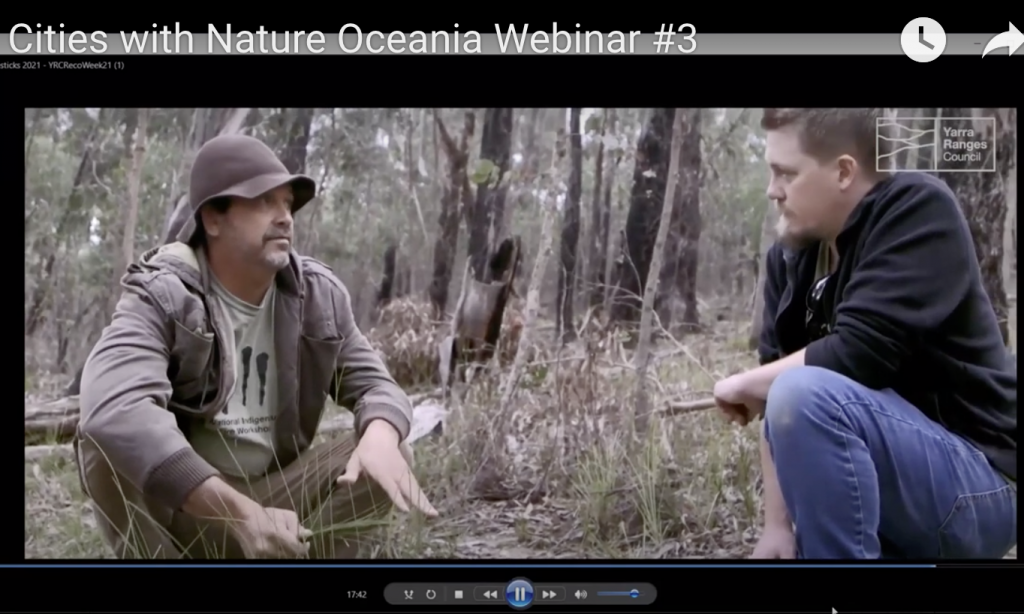
Announcing RegionsWithNature: a new platform that boosts nature action by regional governments

An exciting new initiative dedicated to regional governments and their nature work is being launched today at Daring Cities 2021, the global virtual forum for urban leaders taking on the climate emergency. RegionsWithNature will be a dynamic online space where regional governments and their partners can connect, demonstrate their commitment to biodiversity goals, and access resources to enhance their landscape and territorial actions for nature. RegionsWithNature is building on the success of CitiesWithNature – which has grown to 190 cities and 17 partner organisations since its launch in 2018 – and will follow a similar model.
This partnership initiative is being developed by founding partners ICLEI, Regions4, IUCN, the Group of Leading Subnational Governments toward Aichi Biodiversity Targets (GoLS) and others. Founding regional governments that have already thrown their weight behind RegionsWithNature include Yucatan State in Mexico, São Paulo State and Pernambuco State in Brazil, Goa State in India, the Comunidad de Madrid in Spain and the Western Cape Province in South Africa. RegionsWithNature is being championed by Governor Mauricio Vila Dosal from the State of Yucatan, who is also a Member of ICLEI’s Global Executive Committee where he leads the Biodiversity Portfolio.
Watch the announcement event on 8 October at 16:30 CEST – or the replay – by registering for free at https://daringcities.org/2021-registration . Hear from speakers from ICLEI, Regions4, Yucatan State, the Secretariat of the Convention on Biological Diversity and other leading organisations in this plenary session of the 2030 Visions Day of the Daring Cities forum.
Get a glimpse of what is to come by visiting the new website regionswithnature.org and follow @Regionswnature on Twitter to stay up to date about developments. If you would like to find out more about RegionsWithNature or are from a regional government or partner organisation who would like to join and help build RegionsWithNature, get in touch by emailing info@regionswithnature.org
The need for RegionsWithNature
Many of the actions that we need to take to tackle the climate and biodiversity crises are needed at the territorial and landscape scale. Regional governments such as provinces and states have different mandates from cities and have unique and vital contributions to make. Regional governments are best positioned to work at the larger scale of landscapes and to implement solutions that span from urban to rural areas. For example, to achieve resilient water catchments and sustainable food systems we must work at these scales. Regional governments also play an essential role in supporting and enabling the local governments within their jurisdictions. The IPBES Global Assessment Report on Biodiversity and Ecosystem Services emphasises that successful transformations towards sustainability, require governance approaches that are integrative, inclusive, informed and adaptive.
To support the nature ambitions of regional governments and to ensure that multi-level governance opportunities for action are maximised, regional governments require a dedicated space. RegionsWithNature is being developed at the request of regions to have a space to make their voices heard, to share their experiences, and to showcase their commitments towards achieving national and global biodiversity targets.
RegionsWithNature will serve regional governments from around the world, such as provinces, states, prefectures, and larger territories. The online platform will provide essential resources, tools and services and enable regions to mobilise political will and funding to achieve their ambitions for nature-positive development.
For media enquiries contact pieter.botha@iclei.org
The 2021 Learning Event #2
Biodiversity management
The event will provide an opportunity for municipal peer learning exchanges on biodiversity management for ecosystem restoration and discuss opportunities for funding and technical support. The theme of the event is ‘The Decade on Ecosystem Restoration’, in line with the global 10-year ecosystem restoration programme launched by the United Nations in 2021 with the aim of restoring ecosystems following the COVID-19 pandemic and supporting the implementation of the Sustainable Development Goals (SDGs). Municipalities play an integral role in the implementation of the SDGs, and should consequently be further empowered to restore and preserve ecosystems.
This event will be of particular interest to environmental practitioners in Metropolitan, District and Local municipalities; Department of Forestry, Fisheries and the Environment local government support personnel; District Development Hub personnel in District and Metropolitan municipalities; Spatial planning and land use management personnel in Metropolitan, District and Local municipalities; Provincial environmental affairs departments and their conservation agencies; National Government Departments and Non-governmental organisations working on biodiversity management and research.
RSVP by 20th September 2021 with Ms Khaya Gumede (kgumede@salga.org.za) to attend.
Objectives of the learning event:
- To engage with the community of practice of biodiversity professionals to enable them to share lessons about the implementation of biodiversity related projects.
- To capture implementation challenges and solutions, particularly with the intention of “Making the Case” for biodiversity funding models and allocations.
- To engage on strategies to enhance investment in ecological infrastructure and promote nature-based solutions in land use management practices.
- To foster relationships and partnerships between municipalities for ongoing exchanges and shared services.
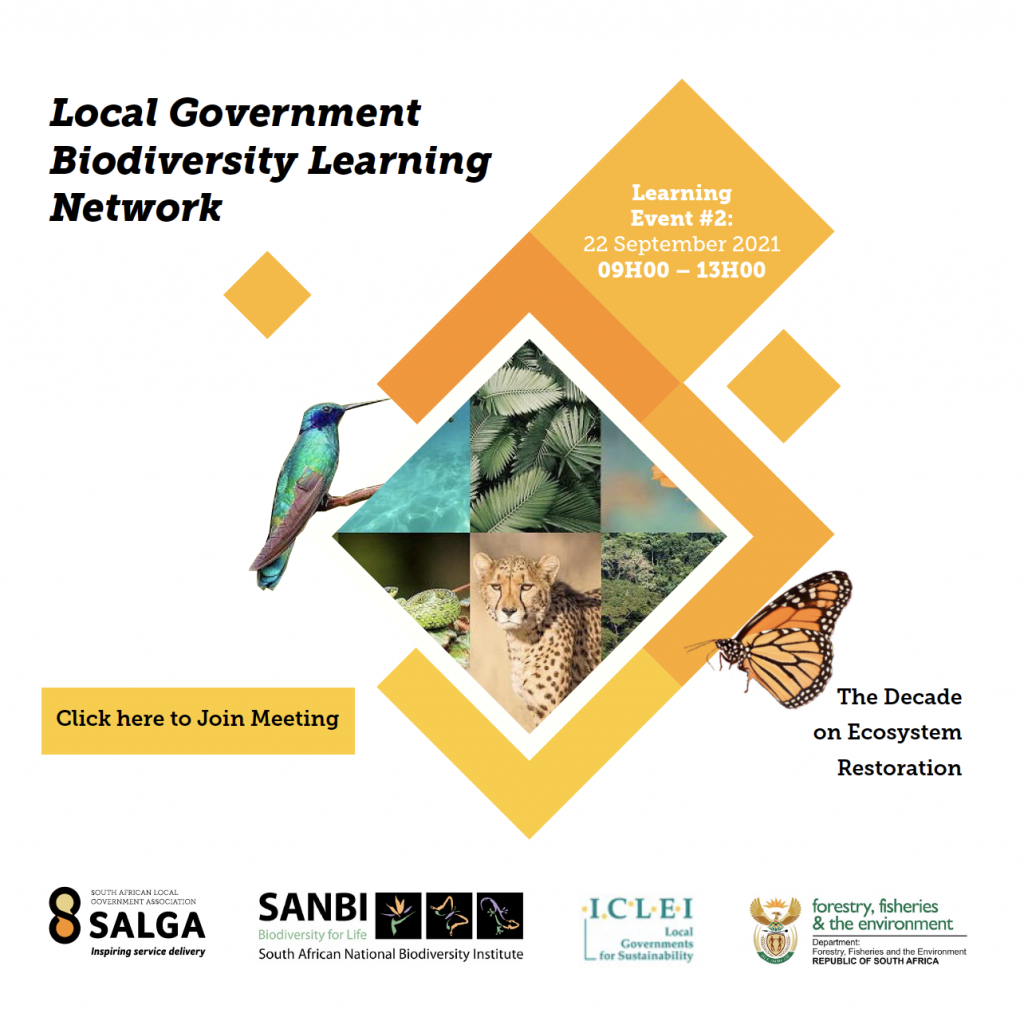
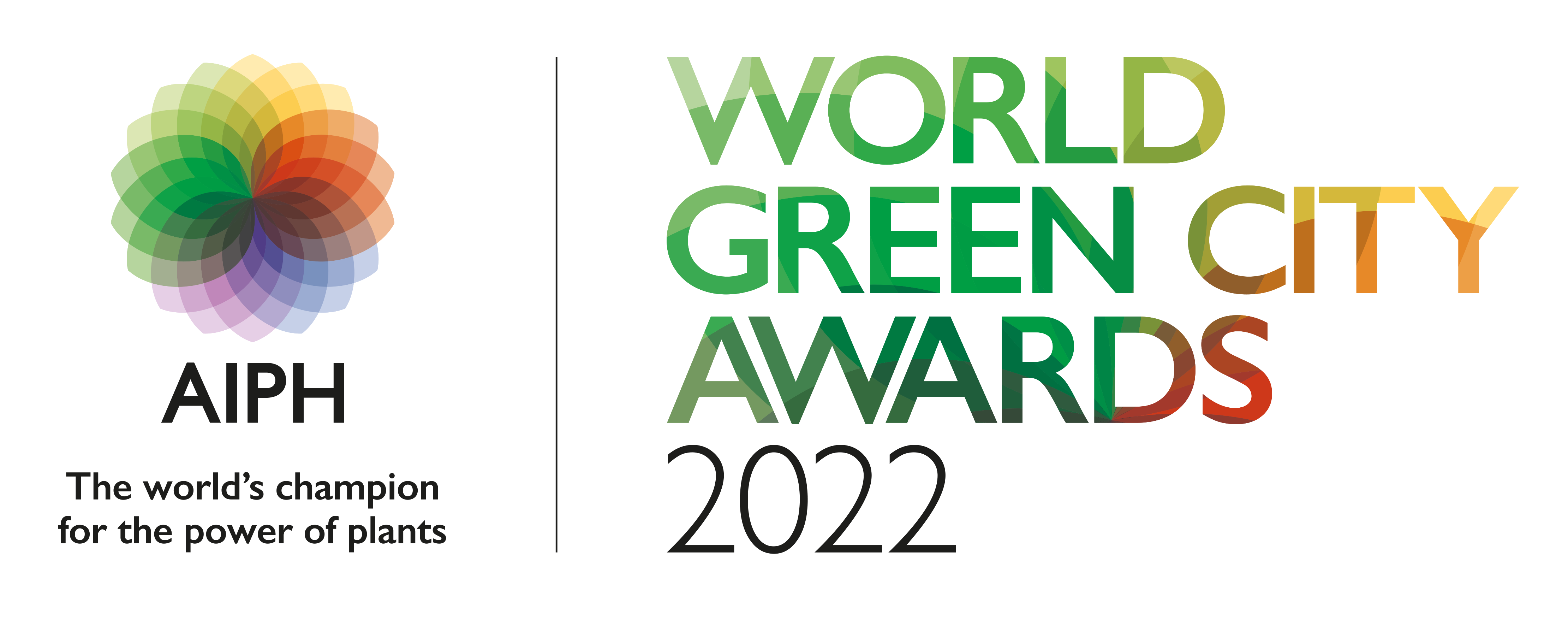
AIPH, the International Association of Horticultural Producers and the world’s champion for the power of plants proudly presents the AIPH World Green City Awards, which recently opened for entries for the 2022 inaugural edition.
AIPH invites all cities, large and small, to showcase their ambitious actions by entering the 2022 edition of the AIPH World Green City Awards.
The leading role of city authorities is recognised for promoting and supporting greater inclusion of nature and plants in urban environments. The AIPH World Green City Awards 2022 are designed to champion ambitious nature-orientated approaches to city design and operation. Specifically, they seek to recognise public initiatives relying on a greater use of plants and nature to create better city environments – helping to fulfil local aspirations for improved economic, social and environmental resilience.
The awards celebrate innovation, achievement, and commitment to the globally recognised imperative to embrace a nature-orientated solutions that harvest the power of plants and associated ecosystem services to help address the major challenges facing cities today – or tomorrow. AIPH initiated these awards to bring wide recognition to the value of plants in providing solutions for common city problems and to create an enabling environment to shape and nurture a strategic shift in city governance and planning.

UrbanByNature webinar series explores Nature-based Solutions in China
On 18 August, UrbanByNature China will host a webinar exploring the enabling conditions and barriers to implementing nature-based solutions, featuring experts from China and the Connecting Nature and CLEVER Cities initiatives.
Speakers will include:
- Stuart Connop, Senior Research Fellow, Sustainability Research Institute, University of East London, UK
- Nian She, Tsinghua University Innovation Center in Zhuhai, China
- Carolina García Madruga, Senior Researcher in Sustainability and Urban Regeneration, Tecnalia, Spain
- Sean Bradley, CLEVER Cities Programme Manager, Groundwork London, UK
- Taoran Guo, Forest City Studio, Shanghai, China
The webinar will be moderated by Chuntao Yang, Program Officer at ICLEI East Asia Secretariat Beijing Office and simultaneous translation (English and Chinese) will be provided.
Tune in on Wednesday 18 August, 9:00 CEST/ 15:00 BJT/CST
You can attend this exciting webinar by registering here.
Find out more about the webinar series here.
What is UrbanByNature?
UrbanByNature is an expertise-sharing and capacity-building programme to empower local governments all around the world to harness the boundless potential of nature for sustainable urban development.
Fuelled by science-supported implementation of nature-based solutions, UrbanByNature offers support to cities as they embark on the journey to becoming CitiesWithNature. The programme aims to bring together established and aspiring urban nature pioneers from local governments, civil society and businesses to co-create a nature-based, sustainable and resilient urban future.
UrbanByNature is hosted by the CitiesWithNature platform and has successfully been launched in Brazil, South Korea and the Caucasus as part of the Horizon 2020 project Connecting Nature.
Learn more about the UrbanByNature Programme here.
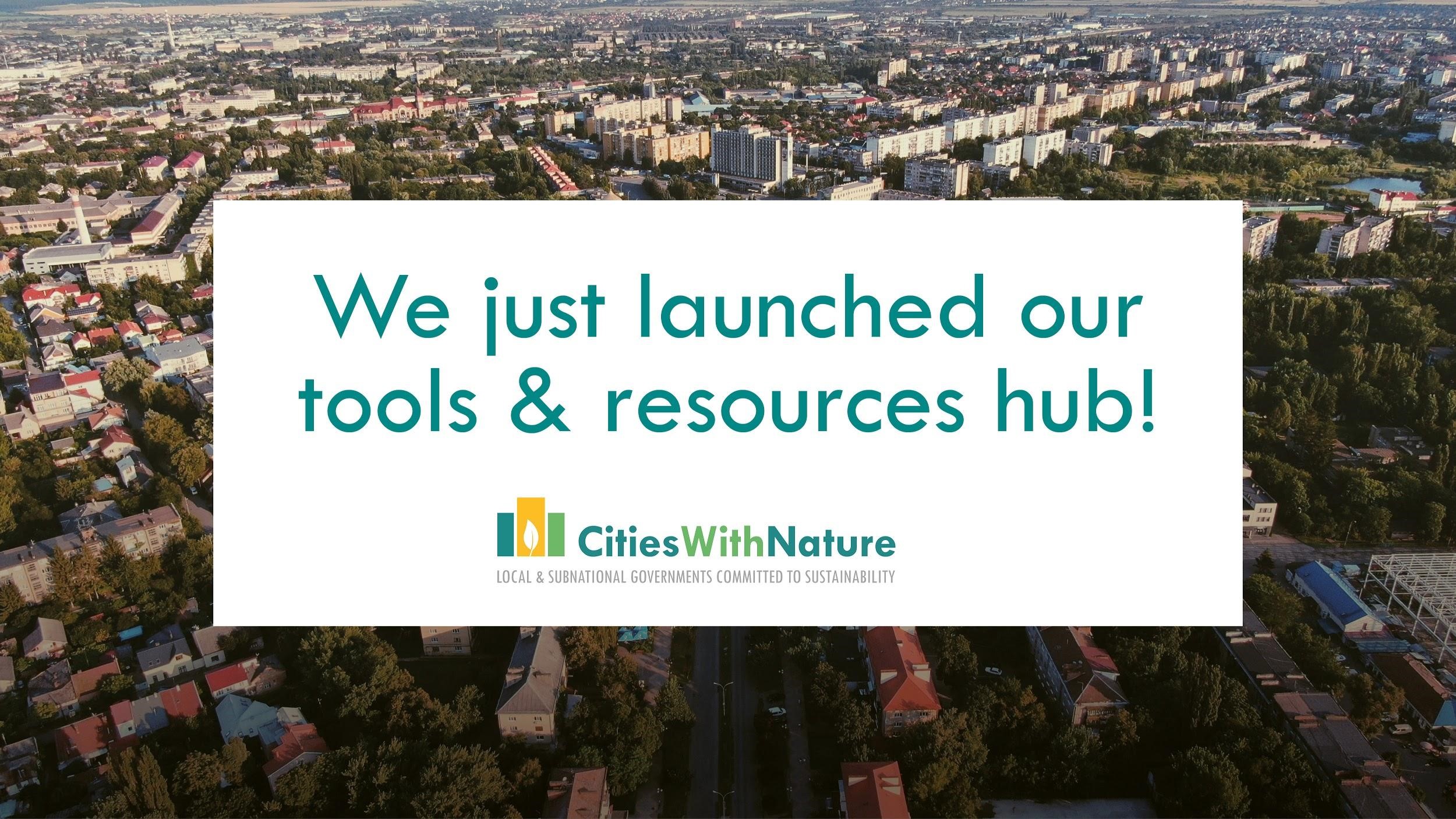
We just launched the Tools and Resources Hub. This new functionality on the CitiesWithNature platform offers a wide range of reliable resources and cutting-edge tools on biodiversity, nature-based solutions, ecosystem restoration, and more. Local and subnational governments signed up to CitiesWithNature have access to all functions of this database, but anyone can browse, learn and be empowered to act for nature in and around their cities.
Over 200+ carefully curated tools and resources are already available on the hub, and the database will grow further as more tools and resources from ICLEI Regional Offices, partner organisations and cities are added. Local and subnational governments that are signed up to CitiesWithNature are able to upload and share their own tools and resources on the hub. As the hub aims to offer tools and resources that are globally, regionally and/or locally relevant, please upload and share your tools and resources, or if you have not yet joined CitiesWithNature let us know about tools and resources that you specifically would like to see on the hub. All tools and resources shared should be available in the public domain and have an associated weblink that can be used to upload it.
Cities need to make many choices on a daily basis. The new CitiesWithNature Tools & Resources library is a place where they can find useful and up to date information, practical tools and guidance that will help them make those choices.
– Amanda Stone, Yarra City Council, Australia

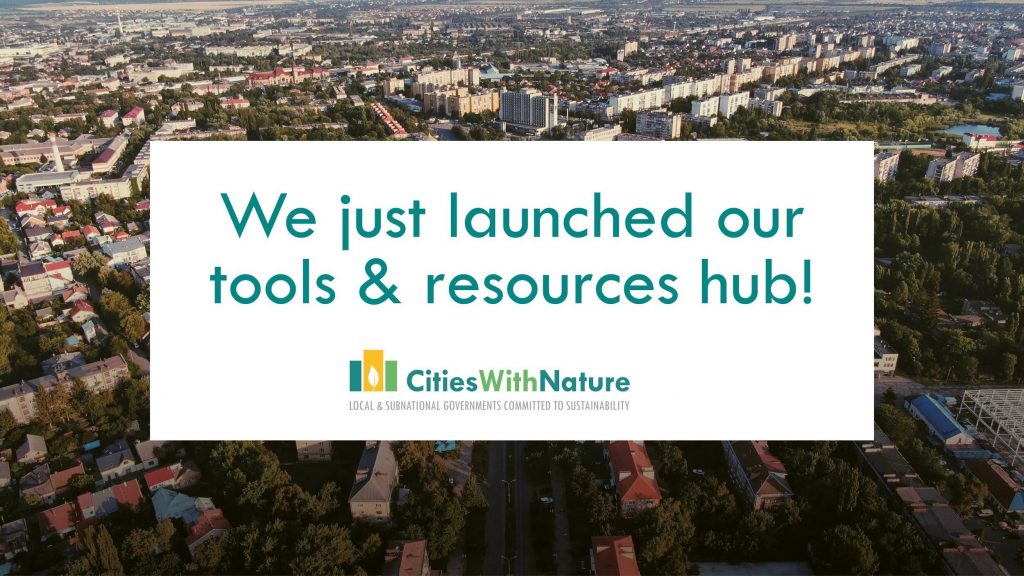
Introduction
What is the Tools and Resources Hub?
The Tools and Resources Hub is now live on the CitiesWithNature website.
We are excited to share that the Tools and Resources Hub of CitiesWithNature was launched early July! This new functionality on the CitiesWithNature platform offers a wide range of reliable resources and cutting-edge tools on biodiversity, nature-based solutions, ecosystem restoration, and more. Local and subnational governments signed up to CitiesWithNature have access to all functions of this database, but anyone can browse, learn and be empowered to act for nature in and around their cities.
Over 200+ carefully curated tools and resources are already available on the hub, and the database will grow further as more tools and resources from ICLEI Regional Offices, partner organisations and cities are added. Local and subnational governments that are signed up to CitiesWithNature are able to upload and share their own tools and resources on the hub. As the hub aims to offer tools and resources that are globally, regionally and/or locally relevant, please upload and share your tools and resources, or if you have not yet joined CitiesWithNature let us know about tools and resources that you specifically would like to see on the hub. All tools and resources shared should be available in the public domain and have an associated weblink that can be used to upload it.
Cities need to make many choices on a daily basis. The new CitiesWithNature Tools & Resources library is a place where they can find useful and up to date information, practical tools and guidance that will help them make those choices.
– Amanda Stone, Yarra City Council, Australia
How Does it Work?
You can access the Tools and Resources Hub even if you are not registered on CitiesWithNature yet. If you are a city, and have signed up, you can access the Tools and Resources Hub and also upload your own.
To access the Tools and resources Hub, you should go to the CitiesWithNature website and click on the MORE button, which is located in the menu bar at the top of your screen. Once you click on MORE, a drop-down will be made available and you will see ‘Tools and Resources Hub’ as part of the drop-down list. You can click here to access the hub.
Once you are in the Hub, you will be able to browse and engage with 200+ Tools and Resources that have been uploaded. Each tool/ resource provides you with a link to the downloadable PDF version.
If you are a registered city, you can login to your account and browse, engage or upload your own resource.
If you would like to upload one of your own tools or resources, you may click on the “upload a resource tab” and follow the steps provided on the website and fill in the required information.

Want to know more?
If you have any queries about the Tools and Resources Hub or another aspect of CitiesWithNature, please let us know and we would be glad to assist. Thank you very much for your support and involvement in CitiesWithNature.
Over the past two decades, ICLEI, through its Cities Biodiversity Center (CBC), has worked closely with the United Nations Secretariat of the Convention on Biological Diversity (CBD) and a range of partners to elevate the voice of local and subnational governments and ensure that strong action is taken to create vibrant cities and regions, where people and biodiversity can thrive.
Taking urgent action for nature
Nature underpins our livelihoods and very existence. It is integral to the effective functioning and well-being of urban communities. This has never been more evident than during the COVID-19 lockdowns. Access to natural open spaces (such as parks, forests, mountains and beaches) was, and in many instances remains, limited and food systems have suffered extreme stress, sometimes even breaking.
Urgent collective global action is needed to reconnect people with nature, protect biodiversity and restore ecosystems. If we do not make peace with nature now – in this decade – the scientific indications are that there will be irreversible tipping points that, once reached, will cause irreparable damage to the critical ecosystems that sustain life on earth.
The escalating decline in biodiversity and associated multiple ecosystem goods and services has implications for the quality of life of current and future generations, adversely limiting our ability to combat poverty, hunger and climate change. More than 37 400 species are at threat of extinction – 28% of all known species.[1] And extinction rates are rising rapidly with predicted future extinctions 10 times higher than they are now. This will significantly negatively affect future generations’ ability to meet their needs. This threat is compounded by the COVID-19 pandemic and climate change, with the former estimated to push as many as 150 million people into extreme poverty this year, and the latter 132 million people by 2030.[2]
Everyone must act quickly to stop biodiversity loss. Oliver Hillel, Programme Officer: Secretariat of the CBD, notes that globally people’s health and well-being, livelihoods and economies depend on biodiversity. “Biodiversity is also the cheapest provider of clean water and air, energy and resilience against climate change,” he says. The Dasgupta Review illustrates that the social benefits of expanding Protected Areas are likely to be significant. A partial economic analysis, focused on forests and mangroves, indicated projected overall benefits of US$170-534 billion a year by 2050.[3] Of this, US$490 billion would originate from avoided flooding, climate change impacts, soil loss and coastal storm damage. These benefits are weighed against the direct investment needed to expand Protected Areas on land and sea, estimated at US$103-178 billion a year by 2030”.[4]
Local and subnational governments – particularly cities, as they plan, coordinate, regulate, monitor and enforce patterns of production and consumption – will need to deliver on as many as two-thirds of the biodiversity targets set out in the Post-2020 Global Biodiversity Framework.
Focusing on biodiversity in the city and regional context
Cities are projected to be home to 75% of the world’s population by 2050.[5] Land-use decisions in the urban landscape related to infrastructure (spatial development), related regulations (emissions, pollution, waste disposal) and by-laws determine to a significant degree societies’ impact on the natural landscape. Cities make these decisions by the thousands each day, often with irreversible consequences. Kobie Brand, Global Director of ICLEI’s CBC, notes that “these impacts are not contained to city boundaries, but can negatively impact the quality of air, soil, water and livelihood options much further afield”.
It is regional and city governments that are best placed to understand and act upon the opportunities and constraints for systemic change within their portfolios. And it is therefore important that their voices and insights are heard on international platforms that are focused on issues of global significance. ICLEI works to elevate the collective voice of local and subnational governments in the United Nations Conventions, such as the CBD, which focuses on conserving biological diversity and sustainable, fair and equitable benefit sharing from its use.
“We deepened our focus on biodiversity in the city and regional context in 2006,” says Brand. At the ICLEI World Congress, ICLEI, in partnership with the International Union for Conservation of Nature’s (IUCN), launched the pioneering global Local Action for Biodiversity (LAB) Programme, highlighting the importance of local biodiversity action.
Launching a dedicated global center and creating platforms for peer exchange and learning
LAB was a world-first initiative developed in response to a request from the City of Cape Town and Ethekwini Municipality in South Africa and the City of Edmonton in Canada for an enhanced focus on biodiversity action at the local level. This exciting pilot project initially worked with 21 pioneer cities of varying sizes and capacity to assess and mainstream biodiversity, as well as identify the value that biodiversity assets provided the city and its citizens. LAB soon expanded to connect and support more than 50 committed cities from around the world. The themes of the LAB Programme were expanded in its second phase to include linkages between biodiversity and climate change, communication, education and public awareness.
ICLEI adopted LAB as its global biodiversity programme and granted ICLEI Africa approval to host a global biodiversity centre in 2008. ICLEI officially launched the CBC in 2010. With ICLEI offices across the globe and a range of local and global partners and stakeholders, ICLEI CBC supports cities and regions in finding and implementing innovative institutional and on-the-ground solutions to reclaim, restore and protect biodiversity. It also ensures that the voices of local and subnational governments are heard in global processes.
Biodiversity action and nature-based development have been mainstreamed as one of ICLEI’s five integrated pathways in its ICLEI Malmö Commitment and Strategic Vision 2021-2027. Through the dedicated commitment of, and collaboration with, ICLEI’s Regional Offices and its World Secretariat, ICLEI CBC has significantly strengthened its reach and ability to mobilize cities and other subnational governments.
Advocating for the collective voice of cities and regions
“For nearly two decades, we have invested in local, national and international advocacy for the voices of local and subnational governments,” says Brand. These ongoing efforts resulted in our contribution to the ‘Edinburgh Process’ that led to the 2020 Edinburgh Declaration on the Post-2020 Global Biodiversity Framework. The Declaration calls for “greater prominence of the role of subnational governments, cities and local authorities in delivering on the Post-2020 Global Biodiversity Framework”[6] and is set to be adopted at the upcoming CBD Congress of the Parties (COP) 15.
ICLEI’s work over the years in the biodiversity and urban nature space has contributed significantly to growing awareness of the role of regions and cities in driving the sustainability transition. In 2007, 32 mayors of major cities met in Curitiba, Brazil with the CBD Secretariat and drafted the Curitiba Declaration on Cities and Biodiversity, actively committing themselves to contributing to CBD objectives and the 2010 biodiversity targets. The first Cities Biodiversity Summit was held in Germany at the CBD COP 9 resulting in the Bonn Declaration. Further commitments were made at a 2008 LAB meeting hosted by the City of Durban, South Africa through the Durban Commitment: Local Governments for Biodiversity.
The role of cities and regions was further entrenched at the CBD COP 10 in 2010 and the second Cities Biodiversity Summit through the Aichi/Nagoya Declaration on Local Authorities and Biodiversity and the historic CBD Decision X/22 on the 2011-2020 CBD Plan of Action on Cities, Local Authorities and Biodiversity. This was the first and only such dedicated Decision on subnational governments in the history of Rio Conventions.
ICLEI’s work, through the CBC, to elevate the collective voice of cities and regions at the international level was recognized in 2012 with a memorandum of understanding signed with the CBD. Hillel notes that “ICLEI has played an instrumental role in deepening the CBD’s focus on local and subnational governments, and has contributed to every breakthrough that the CBD has had in this regard. Today we are the only United Nations body with a unilateral environmental agreement with a specific provision on regions and cities to ensure coherence among levels of government.”
ICLEI CBC has co-hosted Biodiversity Summits for Cities and Subnational Governments as official parallel events to the CBD COP 12, 13 and 14, held in 2014, 2016 and 2018, respectively. At each consecutive Summit, further progress was made in strengthening the voice and appreciation of the critical role that local and subnational governments play in the global biodiversity agenda, both at policy and implementation levels.
Hillel points out that ICLEI has recently been selected to join the BiodiverCities by 2030 initiative, convened in partnership by the World Economic Forum and the Government of Columbia. The Commission brings together experts, practitioners, academia and civil society to find evidence-based solutions to support “sustainable, inclusive and nature-positive urban development”. According to Hillel, ICLEI will play a key role in the Commission in helping to “generate the blueprint for truly green cities – both within city boundaries and their larger footprint”.
Providing tools for local and subnational governments
“We recognize that cities and regions operate in different contexts, with different priorities, capabilities and capacities. ICLEI therefore designs its tools, projects and solutions to be contextual and uses iterative learning to improve and adapt them,” says Brand.
ICLEI CBC has published a range of comprehensive guidebooks and manuals. Out of LAB, which required a three- to six-year commitment from the cities, ICLEI developed the concept of Local Biodiversity Strategy and Action Plans (LBSAPs). These plans are guiding strategies with accompanying actions that local governments can adapt to their own contexts to manage biodiversity and ecosystem services. These plans, now used by a growing number of countries, inform National Biodiversity Strategy and Action Plans prescribed for all CBD Parties.
ICLEI has developed, co-developed and shared tools from others with an expanding network of subnational governments wanting to mainstream biodiversity and ecosystem management into their planning and implementation processes.
“We knew that we needed to expand the LAB network to enable more cities to engage and share knowledge and resources to support a sustainability transition,” says Brand. This took shape as the innovative global CitiesWithNature partnership initiative, launched by co-founders ICLEI, IUCN and The Nature Conservancy (TNC) at the ICLEI World Congress in 2018. The online CitiesWithNature platform was activated as a free, easily accessible and open platform for cities at the sixth Global Biodiversity Summit of Local and Subnational Governments in 2018.
Scaling action and knowledge through CitiesWithNature and RegionsWithNature
CitiesWithNature is a partnership initiative between ICLEI, IUCN, TNC, WWF, the United Nations Environment Programme and many other organizations that provides an innovative online platform to support a co-evolution of cities with nature. It offers access to an extensive array of guides, tools and case studies to help cities and city regions redefine their relationship with nature. This interactive platform is recognized by the CBD. The soon to be launched Action Platform component will enable cities and regions to share and report on their actions to protect nature and their contributions to national and global biodiversity targets. To address the specific needs of regional governments and territories, a new sister initiative, RegionsWithNature, is currently under development. Both the Action Platform and RegionsWithNature will be launched at ICLEI’s Daring Cities Conference in October 2021.
The CBD envisages four bodies/platforms working together to implement the subnational execution of the Post-2020 Global Biodiversity Framework and Plan of Action on Subnational Governments, Cities and Other Local Authorities for Biodiversity (2021-2030). These are the two formally constituted Advisory Committees to the CBD – the Advisory Committee on Local Governments and Biodiversity and the Advisory Committee on Subnational Governments and Biodiversity. ICLEI is the Secretariat of the former. The committees’ main objectives are to coordinate the contribution and participation of all levels of subnational government in processes under the CBD and to act as an advocacy platform for enhanced cooperation between CBD Parties and all levels of subnational government.
The two implementation-orientated platforms are CitiesWithNature and RegionsWithNature, which act as multi-stakeholder platforms at the local and regional levels for learning, measuring and commitment. The soon-to-be launched Action Platform is a key component of these two digital platforms, as it serves as the vehicle for tracking and reporting on actions implemented at the local and subnational levels.
Enabling and supporting systemic and integrated solutions
As the world finds itself in the grips of an evolving pandemic, we have also entered the so-called Decade of Action, with less than 10 years to meet the global Sustainable Development Goals (SDGs). The world is not on track to meet the SDG targets and it will not be possible to meet them with a business-as-usual approach. In June 2021, the United Nations’ Decade on Ecosystem Restoration was officially launched, with ambitious goals to protect and restore the land and marine ecosystems on which human life depends.
Brand notes that “As tipping points are fast approaching, the world needs cities to act – individually and together – in faster, bolder and more concrete ways than ever before to ensure an inclusive, equitable and greener recovery that will also restore humanity’s relationship with nature.
In these important times, and in the years ahead, ICLEI – through its 24 offices, thousands of member and network cities, and many partnerships – stands committed and ready to enable and support systemic and integrated solutions, with nature as a core component of all recovery plans. We will continue to seek more ways for cities to access finance for implementation and for nature to not only be embedded into climate actions, but to drive lifestyle and behavioral changes, in alignment with a One Health approach.”
[1] IUCN. n.d. The IUCN Red List of Threatened Species. [Online] Available: https://www.iucnredlist.org/.
[2] World Bank. 2020. COVID-19 to add as many as 150 million extreme poor by 2021. [Online] Available: https://www.worldbank.org/en/news/press-release/2020/10/07/covid-19-to-add-as-many-as-150-million-extreme-poor-by-2021.
[3] Waldron, A. et al. (2020). Protecting 30% of the Planet for Nature: Costs, Benefits and Economic Implications. In Dasgupta, P. 2021. The Economics of Biodiversity: The Dasgupta Review. London: HM Treasury, pp438
[4] Waldron, A. et al. (2020). Protecting 30% of the Planet for Nature: Costs, Benefits and Economic Implications. In Dasgupta, P. 2021. The Economics of Biodiversity: The Dasgupta Review. London: HM Treasury, pp438
[5] Wahba, T., Sameh, N., Wellenstein, A., Das, M., Palmarini, N., D’Aosut, O., Singh, G., Restrepo, C., Goga, S. Terraza, H., Lakovits, C., Baeumler, A. & Gapihan A. 2021. Demographic Trends and Urbanization. Washington, D.C.: World Bank Group
[6] Scottish Government. 2020. Edinburgh Declaration on post-2020 global biodiversity framework. [Online] Available: https://www.gov.scot/publications/edinburgh-declaration-on-post-2020-biodiversity-framework/.

